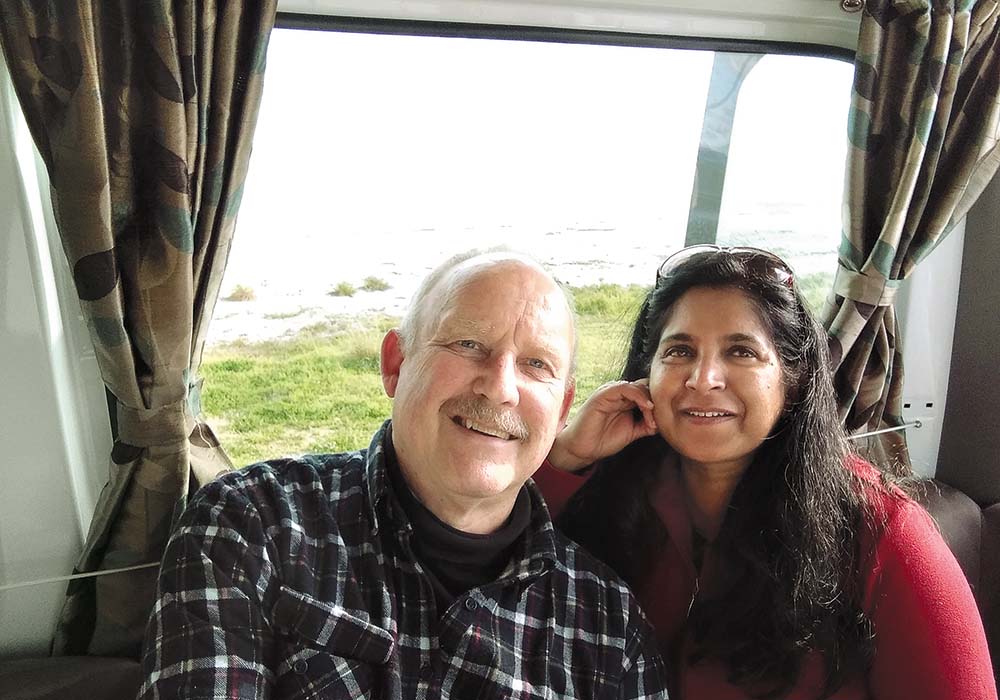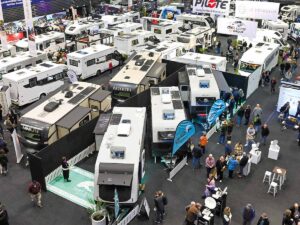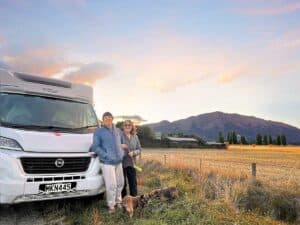Like many before them, Arthi and Gary Fogelberg transferred their passion for boating to a love of motorhoming. Five months ago they bought an RV, and adapted easily to exploring on dry land. They talk to Jill Malcolm.
What was your boating experience?
We had owned and enjoyed a yacht for the past 10 years. But when our two boys left home, we realised we couldn’t justify the costs that boat ownership demands. And as we didn’t use it at all during the long winter months, it seemed to be a lot of work and money for the number of times we were going out on the water.
Why did you decide to buy a motorhome?
We’d thought about the possibility of buying a motorhome for quite a while before we sold the yacht. Actually, it was a bit more than a thought, because we had started looking around on the internet, and were already beginning to work out what might suit us.
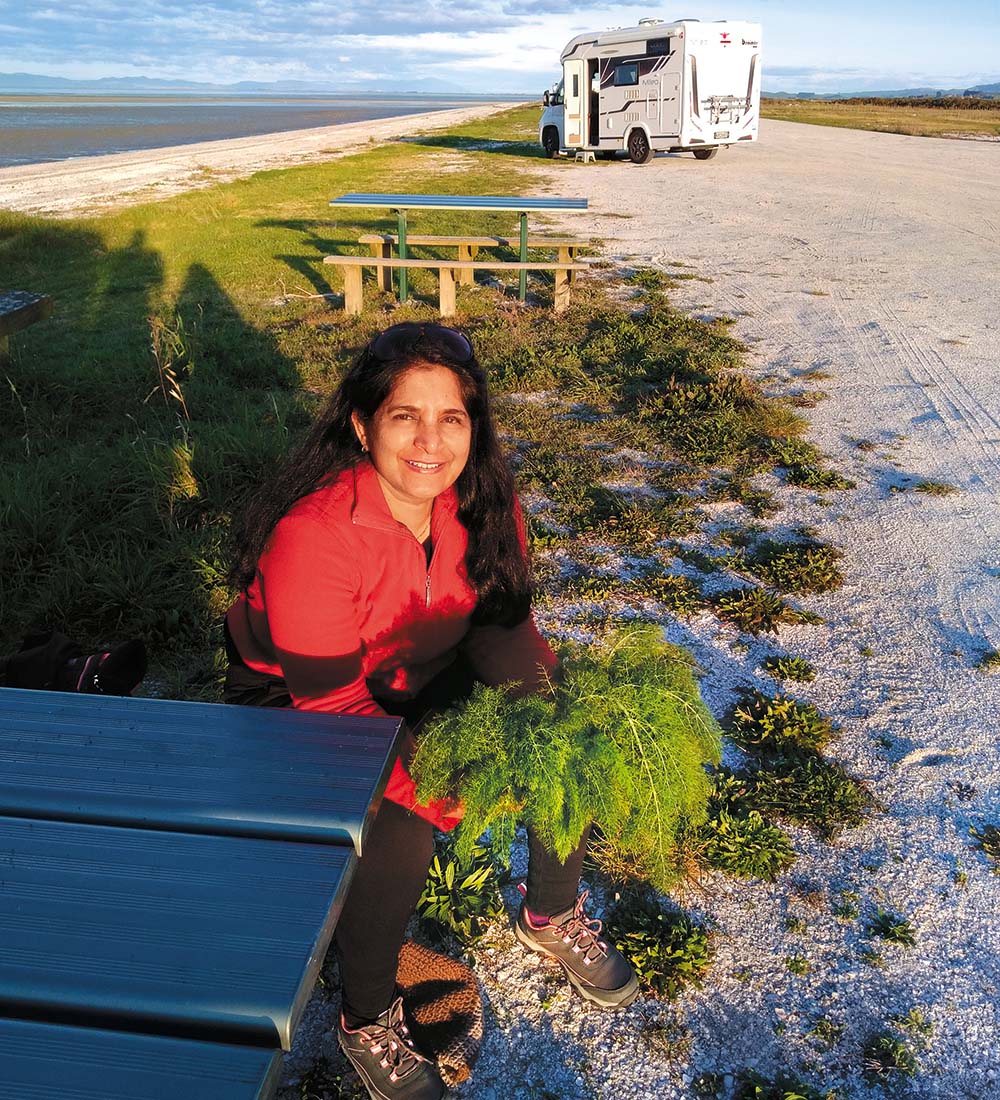
What did you identify as important to you?
GARY: It was more about the actual vehicle to start with. For the convenience of parking, backing and other manoeuvres we wanted it to be narrow, not too high and definitely without a Luton.
It was important to have something that Arthi would have confidence driving.
So quite early on in our research, it became apparent that a converted van would be most suitable. We wanted a walk-through from the home to the cab and, of course, it had to be fully self-contained. The only other aspect we were definite about was that it be a two-berth. The rest was flexible.
What did you buy?
At the RV Super Centre in Albany we were shown a 2015 KEA, ex-rental, Nomad M700 on a Mercedes Sprinter. It ticked all the boxes (bar one) and offered a lot more besides. Strictly speaking, the Nomad is a 2.5 berth, not a two-berth, as the dinette behind the driver’s seat converts to a small single bed. We thought we would never use it, but on one occasion it has already proved useful.
We liked the fact that the motorhome came at a fixed price. There was no negotiating, which made the buying process simple. We got what we paid for and could be confident there would be no unwanted or costly surprises. The van also came with a one-year warranty. Inside and out it was very well presented, almost like new, because the company does a thorough clean and spruce-up when vehicles are returned from the rental fleet, and fixes any maintenance issues.
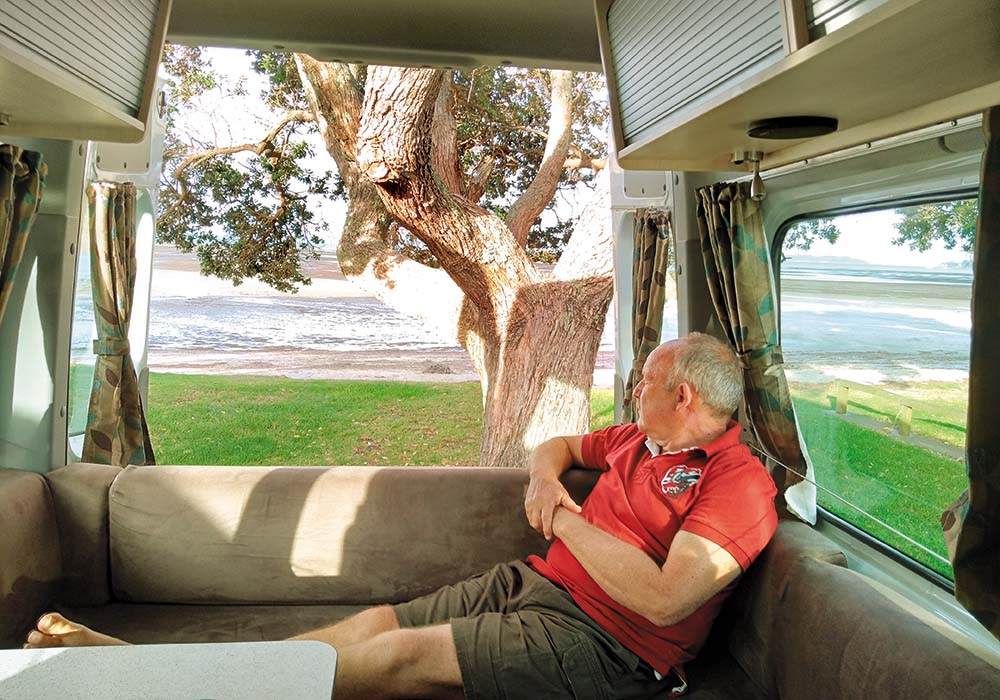
Have you made any changes?
GARY: Yes, and we are learning as we go. The rather large rubbish bin and a safe were fixed over the wheel under a rear seat, and took up too much space. I took them out and fixed the rubbish bin to one side of the kitchen bench near the sliding door. Now we can fit the bedding into the space under the seat. I fitted a tea towel rail to the side of the bench nearest the side door and in the bathroom, hooks for hanging our wet jackets. I also took out the half-size wardrobe and filled the space with shelves. This means we don’t have a wardrobe, but we don’t find that a hardship. We just don’t take clothes that need hanging. We took out the curtains between the passenger seat and the home area, and replaced them with reflective windscreen mats so that we can use the rotating seats at night.
Another thing we might address at some stage is the water pump, which is quite noisy, although it’s noisier inside the van than outside. We were concerned it might upset our neighbours! The vehicle doesn’t come with an awning and at this stage, we feel we don’t need one and that some sort of tarpaulin might do the job. But we’re still thinking that through and could change our minds.
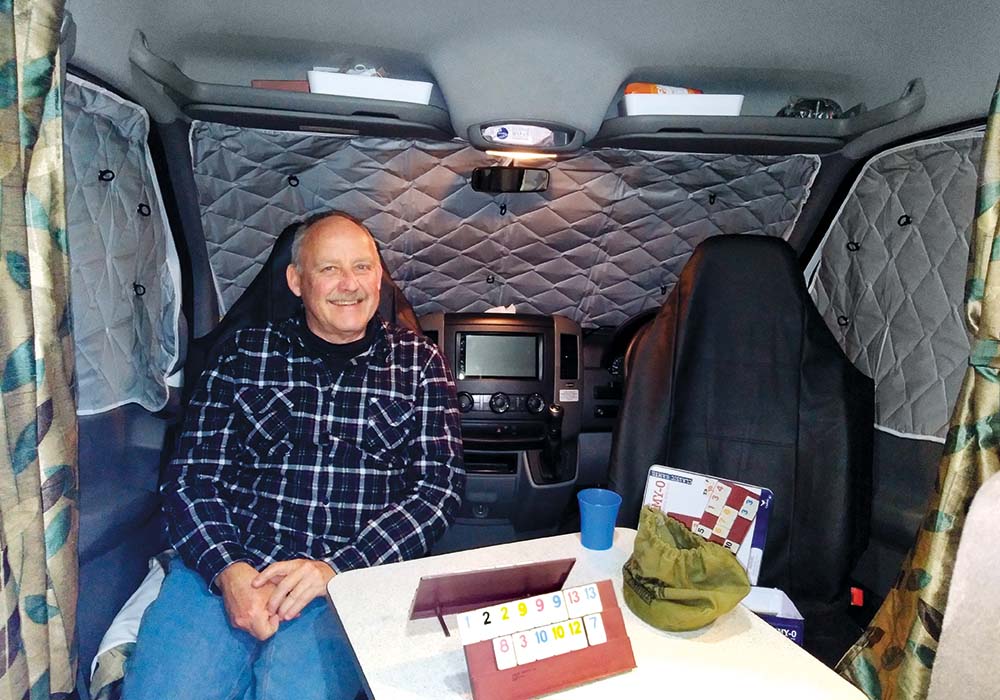
How do you find the interior space?
GARY: The home is a bit tight on space, but well thought out. As long as we have the systems sorted and work out the flow for various chores, it’s comfortable and easily managed. To make a smaller space work, the challenge, as in yachting, is to be organised and systematic. In this way, you get around the compromises in the layout design and facilities.
Our morning routine, for instance, is that Arthi gets up and puts the kettle on for tea while I put the bedding away (in plastic to keep it dust-free) which only takes a few minutes. Then we have the space to get showered and dressed, and prepare breakfast.
ARTHI: The bathroom is very small and has no cupboards, shelves, towel rails or mirrors. We’ve put a stick-on basket on one wall for shampoo and soap, and use heavy-duty stick-on hooks for heavier containers. The handbasin is tiny and sits in one corner, so to rinse our teeth we use mugs. There’s a mirror on the wall outside the bathroom and we use that for anything we have to look at while abluting, as when Gary shaves. None of this presented a major inconvenience once we worked it out.
Another example is dishwashing. There’s not enough room for two people to stand at the bench, so one of us washes at the sink and hands the wet dishes to the other who is seated at the dinette table, with the tea towel in hand.
In any compact area, another way to prevent chaos is to have a designated place for everything and a routine for putting each thing away after it’s used. This is not a problem for us because we are yachties, but it could be a learning curve for some.
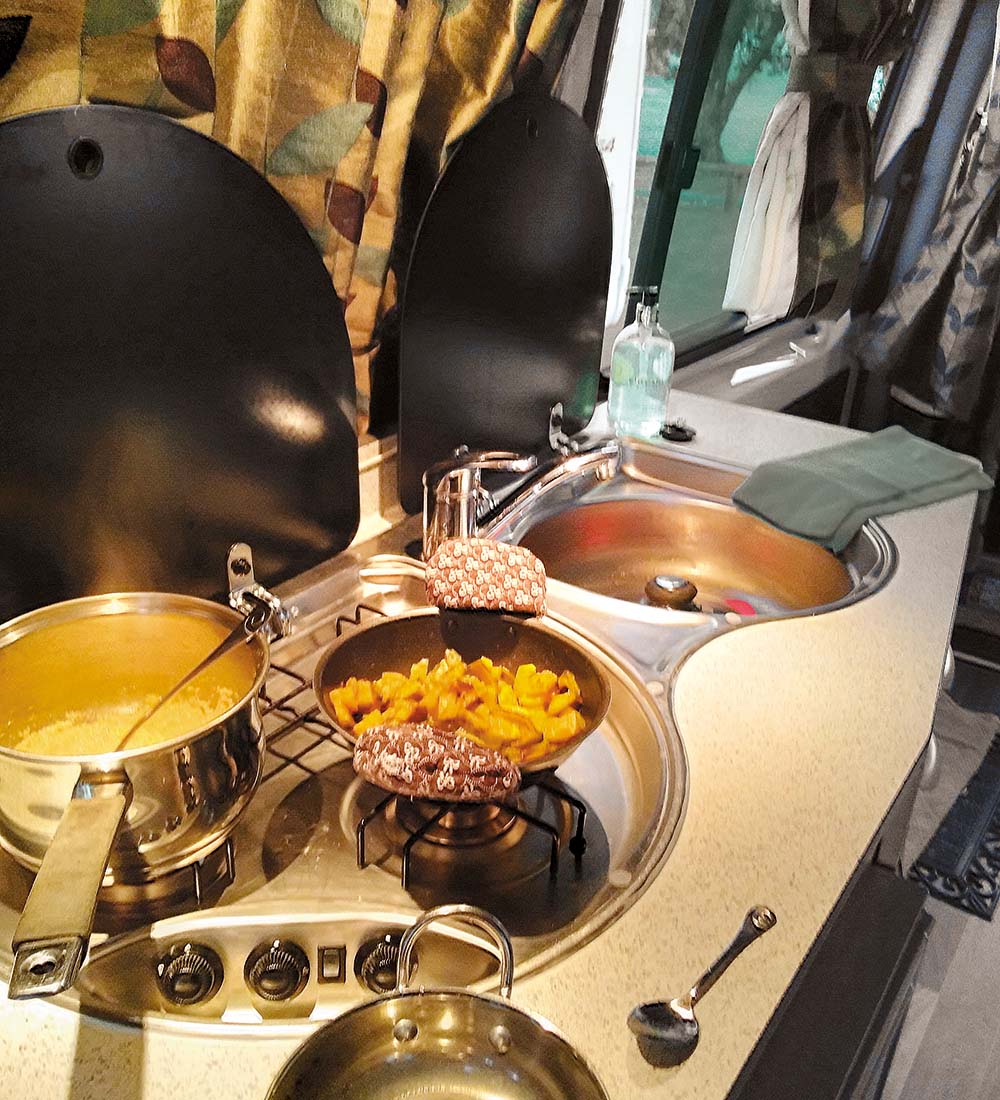
How does the culinary department work? There’s not a lot of bench space?
Both of us like to cook and luckily, we’re not messy cooks. Planning and keeping things simple are the keys. We don’t try to be too ambitious. The van has a three-burner gas cooktop and there’s an exterior slide-out barbecue at the rear of the van which is very handy in fine weather. The 110L fridge seems to have enough space at the moment, but we haven’t yet been away for long periods. We may have to add some sort of chiller bin. The storage space is adequate. We could probably go for a week without having to top up on groceries.
Are you pleased you’ve made the switch from yachting?
We’re thrilled. We absolutely love this way of exploring the small towns, regional parks and DOC camps around New Zealand, and we go away as much as work and weather will allow. We’ve already met some great people and stayed at some wonderful locations even in the middle of winter. The best so far has been the DOC camp at Tapotupotu Bay near Cape Rēinga in Northland. But as we journey around the country we’re sure we’ll come upon plenty more that are just as good.
Looking for motorhomes or caravans for sale? Browse our latest listings here.

